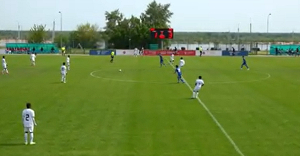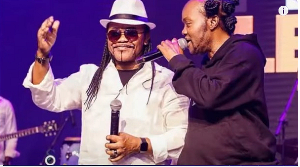- Home - News
- TWI News | TV
- Polls
- Year In Review
- News Archive
- Crime & Punishment
- Politics
- Regional
- Editorial
- Health
- Ghanaians Abroad
- Tabloid
- Africa
- Religion
- Election 2020
- Coronavirus
- News Videos | TV
- Photo Archives
- News Headlines
- Press Release
General News of Wednesday, 15 November 2006
Source: GNA
Parliament lauds chieftaincy as agent for development
Accra, Nov. 15, GNA - Parliament on Wednesday underlined the importance of the chieftaincy institution and called for appropriate recognition to make it play an effective role in contributing to the country's development agenda. Members of the House were unanimous in their contribution stressing that the chieftaincy institution should be adequately resourced, while logistics be made available to them to function.
They were contributing to a statement made by Nii Tackie Commey, NDC-Odododiodoo that chiefs and chieftaincy be given respect and treated as such. He also argued that government must work with chiefs to remove the backlog of cases before the traditional courts.
Mr Alban Bagbin, Minority Leader said chiefs play crucial roles in our societies, stressing that even though some of them were facing challenges, "it is important for them to be supported to overcome them.=94
Defining who was a chief, Mr Bagbin referred to Article 277 of the 1992 Constitution, which was very clear on who was a chief and pointed out that communities who had chiefs imposed on them be regularized to make life for their people less difficult as they usually end up spending all the time on disputes.
He called on government to refocus the role of chiefs, especially where it talks about their engagement in active partisan politics even though their role is sometimes required.
"We should be very clear in knowing if it is considered active partisan politics, if a chief attends a rally or visits a certain politician. We have confused the issue and government and parliament must clarify the matter."
Mr. Isaac Asiamah, NPP-Atwima-Nwabiagya noted that chieftaincy, whether people liked it or not was critical to the nation's survival as it formed part of the very fabric of society.
He expressed concern about how some group of persons have taken to denigrate the institution in recent times and called for an end to the trend.
"We must hold high the personalities in those offices and by so doing we would be holding our nation and individual communities together. Negative comments and utterances against our time-tested chieftaincy institutions only go to undermine our chiefs," he added. He expressed concern that the chiefs bring themselves into disrepute by contributing to land disputes through multiple sale of land to clients.
"The issue of land is critical and our chiefs must be seen to be protecting it."
Mr. Abdul Rashid Pelpuo, NDC-Wa Central said it was not right that chiefs have been relegated to the background in the nation's developmental programmes and made to play very insignificant roles at one time or the other.
"Chiefs represent the spiritual essence of our people and must be seen as such. We must move ahead to marry culture with development if we want the essence of our chiefs to be felt."
He called on government to invest in the institution and raise some of the areas to paramount status to help in shaping development. Mr Pelpuo blamed partisan political attitudes as not helping matters and called for a non-partisan approach to the issue within and outside the House.
The NPP-Member for Lower West Akyem, Mr James Appietu-Ankrah was concerned about the title "development chiefs" (Nkosuohene), which he said was devaluing the concept of chieftaincy. "It is strange that because some people donate some two bags of cement or iron rods, at one time or the other and undertake some projects, they are given the title Nkosuohene, even though others could be doing more and yet do not receive those titles.
"We must ensure that people who are given these titles deserve it and we do not dilute the institution with the people in it."
Captain (Rtd) Nkrabeah Effah-Dartey, NPP-Berekum was emphatic on what the chieftaincy institution stood for, describing it as noble, sacred and unique that must be held in high esteem.
He expressed gratitude for the recognition given it by government, but asked the Ministry of Chieftaincy Affairs to resource the various Regional Houses of Chiefs and ensure that their Judicial Committees get legal counsels to help dispose of the huge number cases pending before them.
Mr Albert Kwasi Zigah, NDC- Ketu South said the institution was facing severe financial challenges and urged that a portion of the District Assembly's Common Fund should be channelled to them for development.
He like other members also suggested that the chiefs should be integrated into the District Assembly concept to tap their rich experience and bring change to bear in the development of their communities.
Responding, Mr Sampson Kwaku Boafo, Minister of Chieftaincy Affairs admitted the problems facing the institution and expressed the hope that the amendment to the existing chieftaincy law would address some of the issues.
On the issue of remuneration, Mr Boafo said the situation was "pathetic" as "paramount chiefs receive 400,000 cedis, rise from the previous 200,000 cedis they were receiving some two years ago." He said the engagement of chiefs in active partisan politics would erode their neutrality, which is required during consultations with their communities.
The House however, failed to comment on suggestions by civil society that chiefs should be part of a Second Chamber of Parliament. 15 Nov. 06










